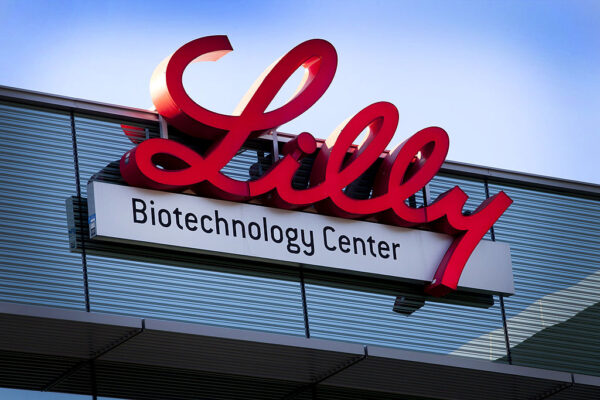
Eli Lilly’s engineered peptide drugs Mounjaro and Zepbound are once-weekly injectable products, formulations that are expensive to manufacture and burdensome to patients who dislike needles. Lilly just struck a deal that could ease both problems. It’s partnering with Camurus, a company with technology that enables extended dosing of injectable medicines.
The collaboration and license agreement announced late Tuesday gives Lilly exclusive global rights to develop and commercialize long-acting drugs based on the technology of Camurus. The deal terms commit Lilly to pay up to $290 million in upfront, development, and regulatory milestone payments.
The platform technology of Lund, Sweden-based Camurus, called FluidCrystal, enables an injected drug to last for extended periods. FluidCrystal employs a lipid solution that transforms into a liquid crystalline gel upon contact with bodily fluids. According to Camurus, this gel encapsulates a drug’s active pharmaceutical ingredient. As the liquid crystalline matrix degrades over time, it slowly releases the drug. This release can be adjusted from days to weeks.
FluidCrystal has validation from Camurus’s formulation of buprenorphine, branded as Buvidal, which is marketed as a treatment for opioid dependence (North American rights to this product have been licensed to Braeburn, which sells it as Brixadi). Camurus has partnerships with other companies as well as an internal pipeline of product candidates in various stages of development.
The new agreement spans up to four Lilly drugs. Those drugs include peptides engineered to activate GLP-1 and GIP, which is the mechanism of action of the approved Lilly products Zepbound and Mounjaro. The agreement also covers a drug that hits GLP-1, GIP, and glucagon, as well as a glucagon and GLP-1 agonist. The deal includes an option to include drugs that activate yet another receptor, amylin.
The ability to extend the dosing of Lilly’s drugs would make each dose last longer, which eases the manufacturing burden for these in-demand products. For much of the last two years, peptide drugs for type 2 diabetes and weight loss have been in shortage. If drugs covered under the partnership with Camurus reach the market, Lilly is responsible for paying up to $580 million in sales-based milestone payments plus royalties on product sales.
In a prepared statement, Camurus President & CEO Fredrik Tiberg said the collaboration enables his company to leverage its technology in a rapidly expanding therapeutic area while maintaining its own commercial focus on central nervous system disorders and rare diseases.

The Power of One: Redefining Healthcare with an AI-Driven Unified Platform
In a landscape where complexity has long been the norm, the power of one lies not just in unification, but in intelligence and automation.
Novo Nordisk has also partnered to gain access to technology that could extend the dosing of GLP-1 drugs. The Danish pharmaceutical giant has an alliance with Ascendis Pharma. That biotech’s platform technology is called TransCon, short for transient conjugation. According to Ascendis, this technology transiently links an inert carrier to a parent drug. Injected into the body, Ascendis says this prodrug predictably releases the parent drug molecule over time, which in turn permits less frequent dosing.
Last November, Novo Nordisk committed to $285 million in upfront and milestone payments to begin the Ascendis alliance focusing on developing drugs for metabolic and cardiovascular diseases. The lead program is developing a once-monthly version of semaglutide, the main pharmaceutical ingredient in the weekly injectable drugs Ozempic and Wegovy.
Photo: Konrad Fiedler/Bloomberg, via Getty Images








